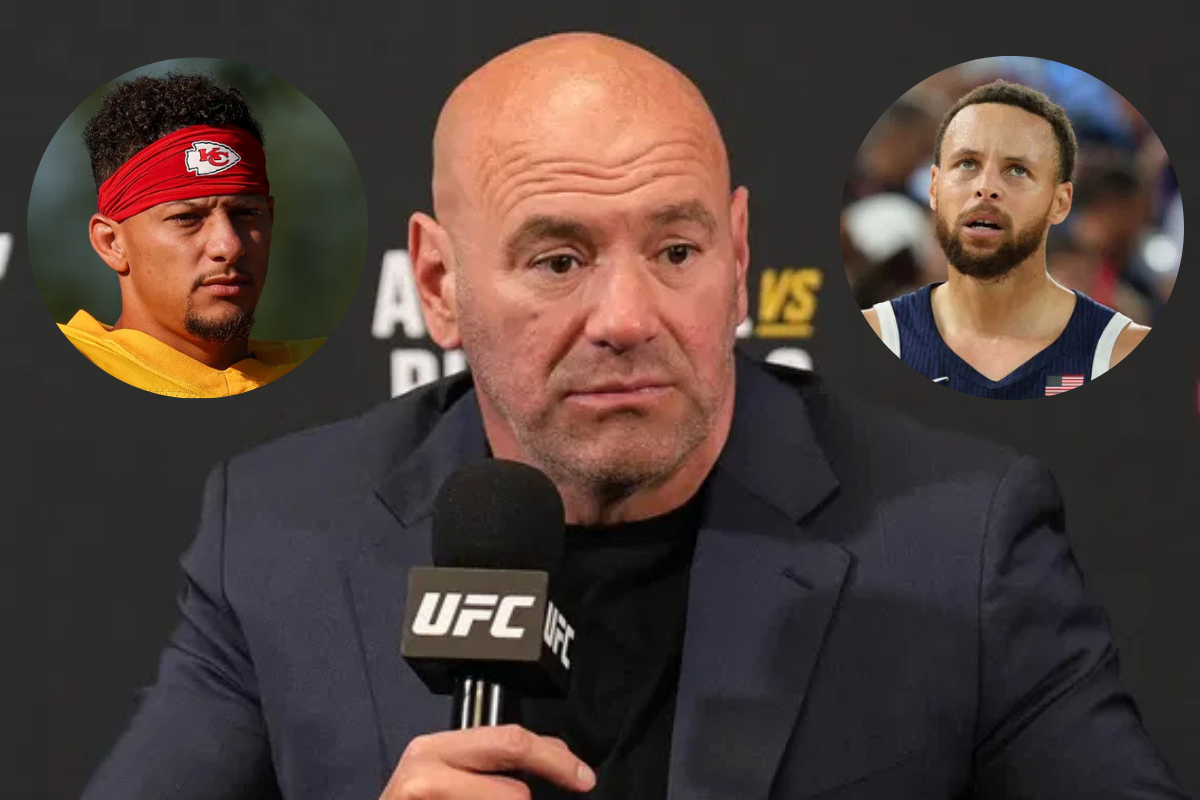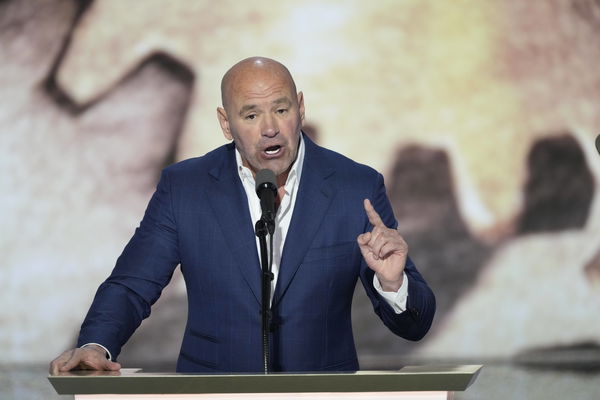
Imago
Credits: IMAGO

Imago
Credits: IMAGO
The mystery around the UFC’s new home has finally been unveiled: Paramount+ will become the UFC’s primary U.S. broadcaster starting in 2026 under a seven-year, $7.7 billion agreement. The promotion signed a contract that covers the organization’s full slate — commonly reported as 13 numbered “marquee” events plus roughly 30 Fight Night cards each year — and select big events will also be simulcast on CBS. The headline grabber: the deal shifts the UFC away from the traditional pay-per-view model in the U.S., making the live slate available via subscription rather than per-event PPV purchases. While many fans and analysts are celebrating the prospect of cheaper access, industry observers are already raising questions about how that windfall will be distributed across the fighter roster and what long-term revenue structures will look like.
Watch What’s Trending Now!
This astronomical deal certainly looks like a dream for the promotion, as they’ll be aiming to deliver even more spectacular shows for the fans. However, others have been quick to point out the possible ripple effects this could have on the fighters themselves. How will they be treated under this new model? But a number of experienced voices — including fighters, agents and analysts — have warned that bigger broadcast checks do not automatically translate into bigger paydays for most fighters. Historically, top headliners could augment their purses with PPV points and backend deals; those PPV incentives have been an important part of top fighters’ earnings for decades. With a subscription model, that PPV pot effectively disappears unless a new method of sharing television/streaming revenue is negotiated — and that is the big unknown. Prominent analyst Luke Thomas has publicly questioned whether the average fighter will see any meaningful share of the upfront TV money, telling audiences on his channels and X that while the deal is massive, the structure does not guarantee fighters an immediate cut of that broadcast revenue.
Thomas stated in his YouTube video, “Not for the majority of the roster, but for the upper end, I wonder—what does it mean? They might be saying, ‘Oh, they’re making $7.7 billion.’ This is where I come back to say—congratulations to all the fighters who decided not to do a union, where you could have, in theory, negotiated an upfront cut for any kind of television deal. Maybe not 50%, but maybe 25–30%. Now they get none of that!”
ADVERTISEMENT
The veteran journalist who spent four years working at Paramount didn’t stop there. He pointed out that NFL and NBA athletes have their own unions and associations, which enable them to reap massive benefits from their TV deals. Reiterating his point, he stressed that this historic, lucrative agreement actually means nothing for UFC fighters.

Imago
News: Republican National Convention July 18, 2024 Milwaukee, WI, USA Dana White, CEO of Ultimate Fighting Championship introduces Republican presidential nominee Donald J. Trump during the final day of the Republican National Convention at the Fiserv Forum. The final day of the RNC featured a keynote address by Republican presidential nominee Donald Trump. Milwaukee Fiserv Forum WI USA, EDITORIAL USE ONLY PUBLICATIONxINxGERxSUIxAUTxONLY Copyright: xJasperxColtx 20240718_LJB_dy8_293
Thomas didn’t mince words: “They get $7.7 billion over seven years, and the fighters, in terms of television upfronts—like an NBA player would get through their union, or an NFL player would get through theirs—they get zero dollars. I have seen fighters ask, ‘What does this mean for us?’ Nothing!”
ADVERTISEMENT
This deal also arrives against the backdrop of recent corporate reshaping: the Skydance-Paramount merger closing and TKO Group’s active shopping of media rights created a narrow negotiating window that precipitated the rapid agreement, according to multiple reports. That corporate context matters because it changes the counter-parties (and their strategic priorities) relative to the prior ESPN arrangement, which reported annual payments in the low hundreds of millions. Industry insiders are watching for TKO’s detailed rider and any public statements from TKO president Mark Shapiro or Paramount’s David Ellison — those will reveal key details on revenue sharing, international windows, and whether any premium or hybrid PPV options survive for certain top events.
Whether the $7.7 billion deal will actually bring anything to the fighters remains to be seen. There’s still a lot to unpack, with plenty of changes to roll out and structures to be revealed. But amid all the noise and reactions, the head honcho himself has stepped forward to share his thoughts after the UFC finally found its new home. So, let’s take a look.
ADVERTISEMENT
Dana White reacts to UFC’s historic 7.7 billion dollar deal with Paramount+
The UFC hitting a new financial peak is surely a feel-good moment for everyone associated with the company. But Dana White might be just a little more thrilled than the rest. After all, he and the Fertitta brothers are the men behind turning this promotion into a global sporting giant. So, after the company reached this massive milestone, the head honcho wasted no time taking to X to share his reaction.
White wrote, “Breaking News 🚨 UFC has a new home in 2026 only on! The historic deal with Paramount and CBS is incredible for UFC fans and our athletes. For the first time ever, fans in the US will have access to all UFC content without a pay-per-view model, making it more affordable and accessible to view the greatest fights on a massive platform. This deal puts UFC amongst the biggest sports in the world. The exposure provided by Paramount and CBS networks under this new structure is a huge win for our athletes and anyone who watches and loves this sport.”
ADVERTISEMENT
Fans were quick to celebrate the news, especially with the end of ESPN+ costs and the elimination of pay-per-view fees. The idea of getting every UFC event with a single subscription has them applauding White and key decision-makers like Mark Shapiro and Ari Emanuel for making it happen.
Top Stories
Is Jean Silva Autistic? Breaking Down Arnold Allen’s “Autism Brothers” Comment Ahead of UFC 324

Cameron Smotherman Risks UFC 324 Fight After “Scary” Weigh-In Collapse

Who Is Arman Tsarukyan’s Father? Nairi Tsarukyan’s Net Worth, Profession & Businesses

Who is Mark Kerr’s Wife? All About Dawn Staples & UFC Star’s History With Franci Alberding

“Someone’s Lying”: Dana White’s Bizarre Response to Justin Gaethje Pay Claims Raises New Questions

With that being said, what do you think about this historic UFC and Paramount deal? Could it change the way we watch the sport forever? And most importantly, will it help fighters grow financially? Share your thoughts in the comments below.
ADVERTISEMENT
ADVERTISEMENT
ADVERTISEMENT